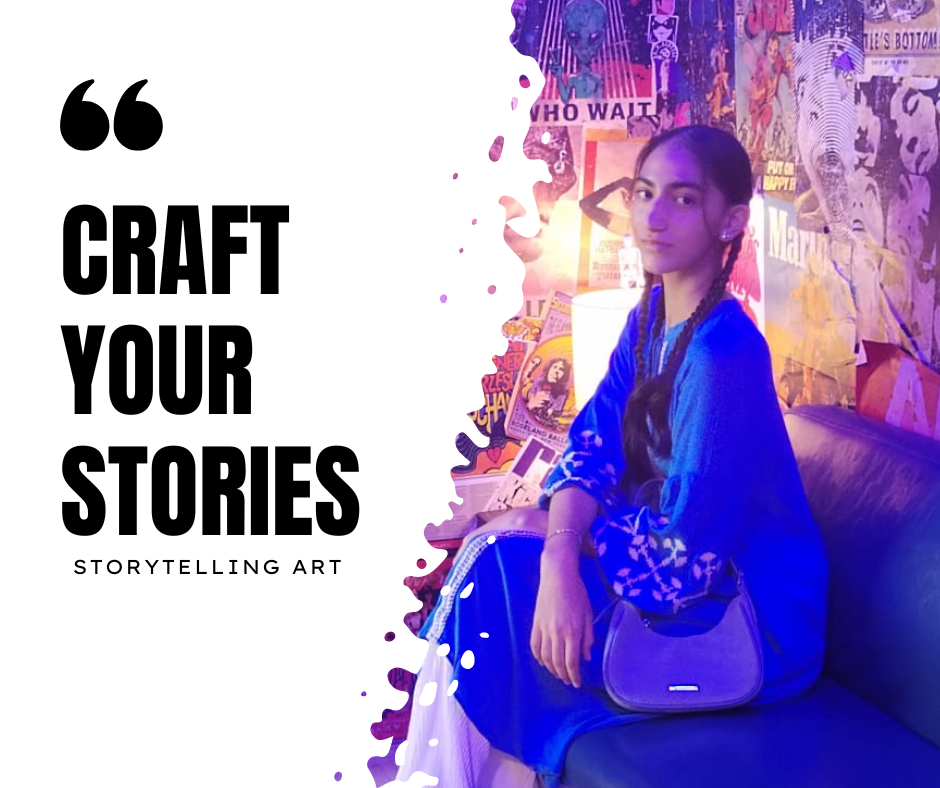Storytelling is a timeless and universal art form that has captivated people across cultures and generations. Short stories, in particular, hold a special place in the world of literature, offering a concise yet powerful way to convey a narrative, evoke emotions, and provoke thought. If you’ve ever been drawn to the idea of crafting your own short stories, this blog will serve as your guide to explore the rich and rewarding world of storytelling.
1. Start with a Spark of Inspiration
Every story begins with a spark of inspiration, a moment, an idea, or an image that ignites your creative imagination. Pay attention to the world around you, observe human interactions, or draw from personal experiences—these are all fertile grounds for inspiration.
2. Define Your Theme and Genre
Before diving into writing, it’s essential to define the theme and genre of your short story. Do you want to explore themes of love, loss, mystery, or the human condition? Choose a genre that resonates with you, be it science fiction, romance, fantasy, or literary fiction.
3. Develop Compelling Characters
Characters are the heart of any story. Create well-rounded, relatable characters with distinct personalities, motivations, and flaws. Readers should either root for or be intrigued by your characters’ journeys.
4. Craft a Vivid Setting
The setting serves as the backdrop for your story and can greatly influence its mood and atmosphere. Whether it’s a bustling city, a quaint countryside, or a fantastical realm, vividly describe the world in which your characters exist.
5. Plot and Structure
All stories have a beginning, middle, and end. Develop a clear plot structure with an introduction that sets the stage, a rising action that builds tension, a climax that reaches the story’s emotional peak, a falling action that ties up loose ends, and a resolution that satisfies the reader.
6. Show, Don’t Tell
Instead of simply telling readers what’s happening, engage their senses through descriptive writing, dialogue, and actions. Allow readers to experience the story alongside your characters.
7. Build Conflict and Tension
Conflict is the driving force behind every narrative. Introduce obstacles, dilemmas, or opposing forces that challenge your characters, and keep the tension simmering to maintain reader engagement.
8. Dialogue that Rings True
Dialogue is a powerful tool for character development and plot advancement. Ensure that your characters’ dialogue feels authentic and serves a purpose in moving the story forward.
9. Revise and Edit
Writing is rewriting. After completing your initial draft, take a step back and return to your work with fresh eyes. Look for inconsistencies, refine your prose, and ensure your story flows smoothly.
10. Seek Feedback
Share your work with others, whether it’s friends, writing groups, or beta readers. Constructive feedback can provide valuable insights and help you refine your storytelling skills.
11. Embrace Brevity
Short stories thrive on brevity. Keep your narrative focused and avoid unnecessary subplots or details. Every word should serve a purpose, contributing to the story’s impact.
12. Read Widely
Read a variety of short stories and literature from different authors and genres. This exposure will expose you to various writing styles, techniques, and storytelling approaches, enriching your own craft.
13. Stay Inspired
Writing can sometimes be challenging, with moments of self-doubt and writer’s block. Find sources of inspiration that reignite your passion, whether it’s through nature, art, or simply taking a break to clear your mind.
14. Share Your Stories
Don’t keep your stories hidden away. Share them with the world. Submit your work to literary magazines, enter writing contests, or consider self-publishing. Sharing your stories allows them to find an audience and adds your unique voice to the world of literature.
Conclusion: Your Stories Await The art of storytelling is a journey of creativity, imagination, and self-expression. By crafting your own short stories, you have the power to transport readers to different worlds, evoke powerful emotions, and leave a lasting impact. So, pick up your pen or open your laptop, and embark on the adventure of storytelling. Your stories are waiting to be told, and the world is eager to listen.
